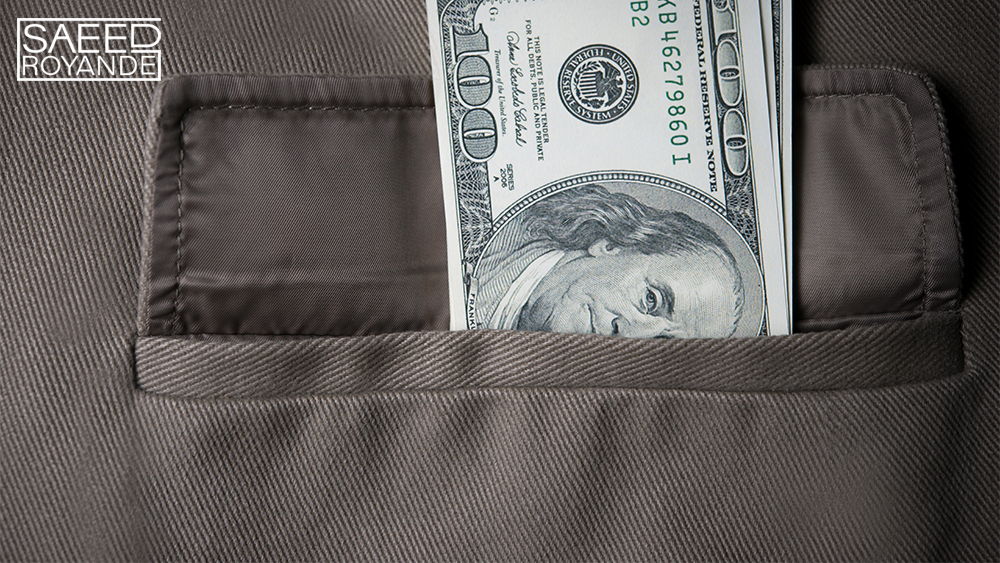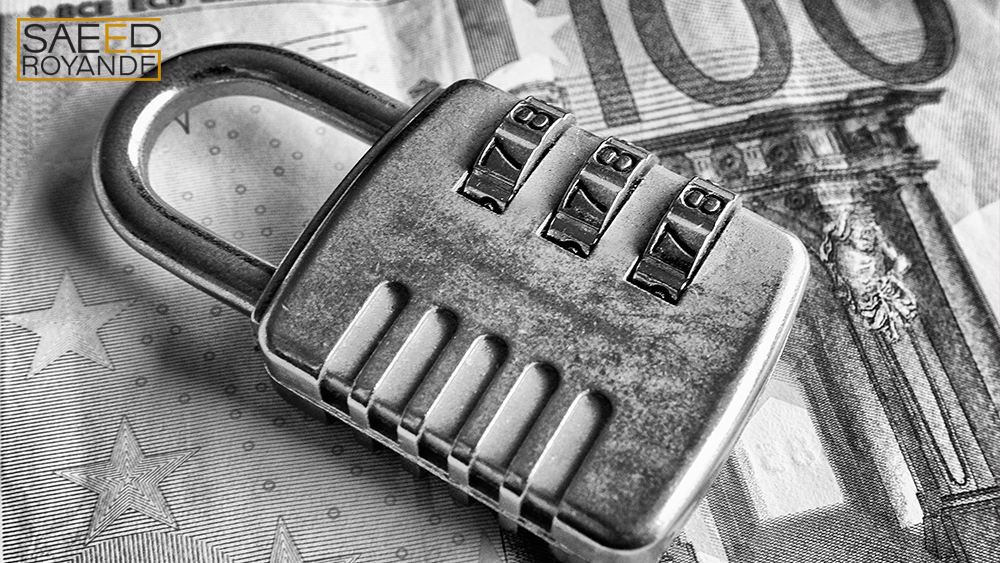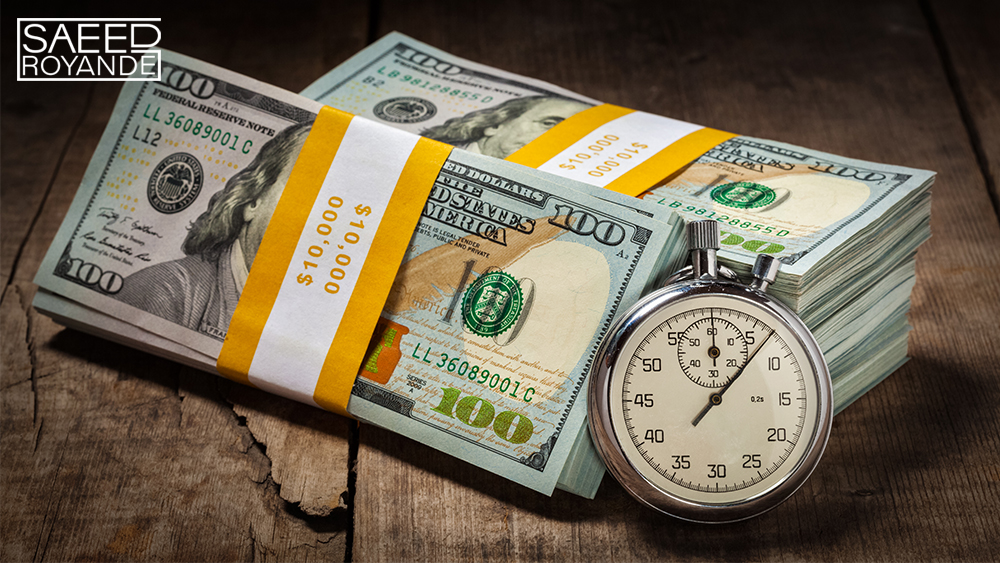The term “black money” refers to any money generated illegally or legally but not reported for tax purposes. In most cases, the proceeds of black money transactions are received in cash and hence are not subject to taxation. Those who receive black money must keep it hidden, spend it only in the black market, or use money laundering to give the appearance of legitimacy to the money they have received.
The definition of black money in economics
There isn’t a single definition for black money when it comes to economics. For the uninitiated, illegitimate money or money that the Government has not taxed is referred to as “illegal money.” Counterfeit money, such as fake banknotes, is not counted as black money. An illegally printed counterfeit note is called a “counterfeit currency note.” The amount of money being laundered illegally and not reported to the Government is referred to as “black money.” The term “white money” refers to money that has been earned legally and accounted for and for which taxes have been paid. In a perfect economy, all transactions should be recorded. By doing this, the Government might more easily bring in revenue. The term “black money” refers to transactions made without adequate accounting.

Money with word cube
The impact of black money on the market and economy
Black money affects the market and economy in various ways. The following impacts are examples of how black money will build a parallel market:
Dual-Currency
There has been a steady rise in black money in the world over time, and this has resulted in an ever-increasing economic dualism, which includes both the official and the unofficial economies. One-fifth of all economic transactions take place in the black market. As a result, it is difficult to distinguish between the activities that are recorded and those that are not. The country’s entire economic growth will be submerged by a parallel economy.
Lack of foresight
The official compiled national income statistics underestimate the true size of the economy due to the increase in black income and the existence of a huge underground sector. For proper policy-making and planning, estimates of national savings and consumption, as well as measurements of other macroeconomic variables, would be distorted and misleading because the unreported economy is seemingly removed from official records of the Gross National Product.

Dollar money in pocket
The Government loses money
Tax avoidance is a major cause of black money. The Government suffers as a direct result of this. A lack of tax revenue forces the Government into excessive taxation and deficit financing, which has the same negative economic impacts. Many entrepreneurs who are counting on government aid to run their startups will be affected negatively by this.
Putting the Equity at Risk
Tax evasion and the rise of black money have a negative impact on the concept of social justice when the Government uses progressive direct taxation to ensure that the tax burden is evenly distributed. Again, the Government would raise taxes on officially sanctioned activity while underground operations like smuggling cannot be taxed.
Sources of black money
Black Market and Black Money were first brought to light during World War II. It became apparent at the time that there was a hidden market for commodities where they could be purchased but at a higher cost than on the regulated market. The “black market” coined the term “black money” to characterize money received or paid there. Eventually, black money spread well beyond the boundaries of the illicit market. Defined by the financial education, there are two basic categories of sources of black money, which are as follows:
- Legal activities
- Illegal activities

Safe money black and white
Legal activities
Earning money lawfully but avoiding paying taxes on that income is the primary goal here (which can be termed as tax envision). Unexplained income is caused by tax avoidance, whether the tax is direct or indirect. High tax rates, a lack of regard for the Government and its rules, mild punishments, and the nature of the economy all contribute to tax evasion. Tax evasion becomes more attractive when tax rates are high. Tax evasion is more common in countries where citizens have little regard for the Government or the rules that govern them. In addition to sending the wrong message about disobedience with regulations and laws, tax evasion by politicians might also be encouraged by mild criminal punishment. Poor enforcement of regulations is often linked to a higher share of an unaccounted economy in nations where sound deterrence has been implemented.
Illegal activities
Criminal black money includes activities that are considered anti-social, such as smuggling of goods, embezzlement, forgery, and the use of illegal funds, as well as the production and trade of illicit goods (such as drugs, alcohol beverages, and weapons). Other activities include illegal mining and the clearing of forests, as well as the hoarding and black marketing of price-controlled goods and services. These practices, which show a deterioration in moral and social values, are prohibited by a number of federal and state laws.

Hand gun and euro banknotes
Quantifying the black money
People are purposefully and aggressively obstructing the Government’s ability to measure one thing. Since black money is money that hasn’t been tracked down, it’s hard to know how much of it is in circulation and much harder to know how much of it is turned into white. Real estate, mining, bullion and commodities markets, and pharmaceuticals are the sectors that contribute the most to the black money problem. How is black money quantified? The input-output ratio can be used as an indicator. A country’s output should match the quantity of input it receives. Underreporting occurs when output is lower than expected. This approach does not take into account changes in the economic structure, efficiency gains, or technological advancements. An alternative way is to compare the currency in circulation to the size of a particular economy. Because currency is widely utilized in both the mainstream and shadow economies, this hypothesis is supported. Because of this, it is likely that a parallel economy exists even in a tiny country. However, the unorganized sector is not taken into consideration in such an evaluation.
Converting black money to white money
Money that has not been disclosed or earned unlawfully is known as black money. It’s money that hasn’t been recorded, accounted for, or reported. There is no precise estimate of the amount of black money in the country; however, estimates range in the lakhs of crores. According to experts, there is just 5% to 6% of the black money in cash. Real estate, gold, precious metals, shares, and property make up a large portion of it. Converting black money to white money is not legal, and any business coach will advise against it; however, the following methods are widely used through the market as means to clean and wash the untaxed money income.

Financial advisory corporate tax planning
Buying a vehicle as an investment
Cash is a viable investment option for those with illicit funds. Insurance policies can be purchased and premiums paid in cash. The initial premium is often paid by check, and the rest is paid in cash. The safest places to put black money are in pension protection fund accounts, tax-saving mutual funds, and other types of fixed deposits. Alternatively, another method is buying gold from a local shop, keeping the invoice, and then selling the gold back to the shop after a predetermined amount of time.
Establishing a foundation and engaging in charitable activities
When it comes to social causes, people develop a sense of loyalty and commitment. In many cases, illiterate members of the executive body, such as housemaids, drivers, cooks, security men, etc., are in charge. They receive a charitable donation in the form of cash. Is it charity, or is it a black-to-white transformation? The trust then uses this money to provide a loan to the head member, who never has to pay it back.
Receiving cash from a Job
Showing income in cash is another method of changing black money into white money. Tuition fees, professional fees, consultation fees, and commissions are all possible monetary sources of such incomes.

Money and time show black money consept
Declaring black money to the Government
Supposedly, it’s the most efficient technique to turn black money into white. The most straightforward method is to report the funds to the Internal Revenue Service (IRS), pay any applicable taxes and penalties, and then exchange the funds for white. Small business owners can provide their employees with a few months’ worth of compensation in advance and put the money in their employees’ bank accounts.
Are there any benefits to black money?
The countries with the most repressive laws are the ones where black money is most beneficial. As an example, under the Soviet Union, many everyday business transactions were unlawful. People went to the underground economy in order to ease shortages and obtain prohibited products. Other regimes implemented price controls or sales levies that made items expensive in many cases. The use of black money allowed for a reduction in the amount of harm. The consequences of institutionalized racism can be mitigated through the use of black money. Certain races were once prohibited from owning land, trading in stocks, or engaging in other forms of trade by governments in the past. As a result of these restrictions, some victims of discrimination were compelled to seek employment in less strictly controlled industries, where they might earn untaxed income.


